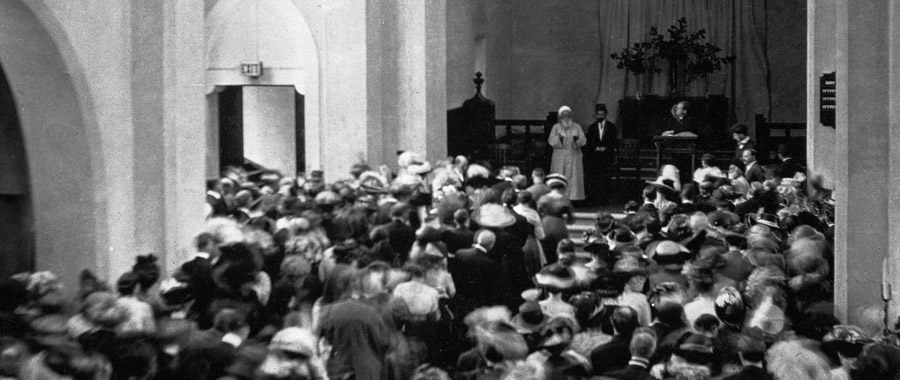Abdu’l-Baha, a pivotal figure in the Baha’i Faith, championed an inclusive vision of humanity that transcends racial, ethnic, and national boundaries. His profound insights into race unity not only addressed the sociopolitical challenges of his time but also offered a timeless framework for understanding and implementing racial harmony in contemporary society. The teachings and strategies that Abdu’l-Baha articulated can be categorized into several significant themes, which are essential for fostering race unity and promoting a just and equitable world.
One of the foundational aspects of Abdu’l-Baha’s teachings on race unity is the assertion of the essential oneness of humanity. He posited that all humans share a common origin, thereby negating the arbitrary distinctions often imposed by race or ethnicity. This philosophical underpinning serves as an antidote to the divisive nature of racism, which thrives on the illusion of separation. By advocating for the recognition of our shared humanity, Abdu’l-Baha urged individuals to abandon prejudiced ideologies and embrace a universal perspective that highlights collective dignity and rights.
The Second aspect of Abdu’l-Baha’s approach involves educational imperatives. He emphasized that education is pivotal in fostering an understanding of race unity. Ignorance and lack of awareness often perpetuate racial biases and stereotypes. Abdu’l-Baha urged educational institutions to integrate lessons on racial equality and the value of diversity into their curricula. He believed that through enlightened education, individuals could be equipped with the knowledge and moral discernment necessary to challenge racial injustices and promote empathy across racial divides.
Moreover, Abdu’l-Baha articulated the importance of dialogue and engagement among various racial and ethnic groups. He advocated for the establishment of platforms where individuals could come together, share their experiences, and engage in meaningful conversations about race. By encouraging collaborative interaction, Abdu’l-Baha aimed to cultivate understanding and foster relationships based on mutual respect. He posited that direct engagement facilitates the dismantling of stereotypes and the cultivation of friendships, ultimately leading to enhanced social cohesion.
Another critical dimension of his teachings is the promotion of justice and equity. Abdu’l-Baha asserted that true race unity cannot be achieved without addressing systemic injustices that disproportionately affect marginalized communities. He called for the dismantling of institutionalized racism and advocated for policies that promote social justice. His teachings serve as a clarion call to action for individuals and institutions alike, emphasizing the moral responsibility to combat racial inequity through equitable laws and systemic reforms.
Abdu’l-Baha also highlighted the role of service in achieving race unity. He believed that engaging in selfless service to others fosters a sense of community and interconnectedness among diverse groups. Service acts as a practical mechanism through which individuals can translate their commitment to racial unity into tangible actions. By working collaboratively on community projects, individuals from different racial backgrounds can build trust, foster relationships, and contribute to collective wellbeing, thereby reinforcing the tenets of unity that Abdu’l-Baha espoused.
Another salient element of Abdu’l-Baha’s approach is the advocacy for the equality of men and women. He asserted that gender equality is intrinsically linked to the quest for racial unity, as both issues stem from the same underlying principles of justice and respect for human dignity. By promoting the empowerment and education of women, Abdu’l-Baha emphasized that society could advance more holistically. He believed that once women were afforded equal opportunities, they would contribute significantly to the transformation of societal norms concerning race and equality, further amplifying the call for unity.
Throughout his life, Abdu’l-Baha demonstrated a commitment to international peace, which is intricately connected to his vision of race unity. By calling upon nations and individuals to cultivate relationships based on trust and cooperation, he posited that the foundations of global peace could be laid. His assertion that peace is contingent upon unity among diverse racial and ethnic groups resonates profoundly in today’s world, where conflict often arises from divisions rooted in cultural misunderstandings or racial animosities.
Finally, the role of spiritual development was paramount in Abdu’l-Baha’s teachings. He maintained that personal spiritual growth offers the necessary foundation for fostering race unity. By nurturing virtues such as love, compassion, and forgiveness, individuals can transcend personal prejudices and cultivate a genuine appreciation for diversity. Abdu’l-Baha highlighted that spiritual enlightenment enables individuals to view others through a lens of empathy, thereby promoting harmonious coexistence.
In conclusion, Abdu’l-Baha’s radical approach to race unity emerges from a comprehensive framework encompassing the oneness of humanity, education, dialogue, justice, service, gender equality, international peace, and spiritual development. His teachings offer a rich tapestry of principles that inspire individuals and communities to work towards a world where all people, regardless of race or ethnicity, can coexist in harmony. In navigating the complexities of race relations, adherents and seekers alike are encouraged to reflect upon and embody these principles, thereby contributing to a more unified and just global society.
